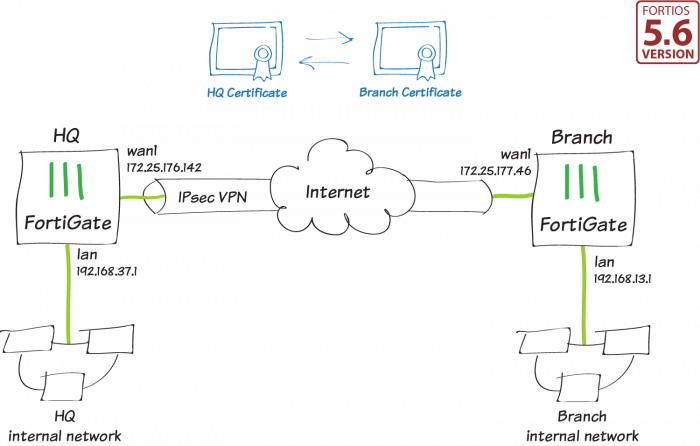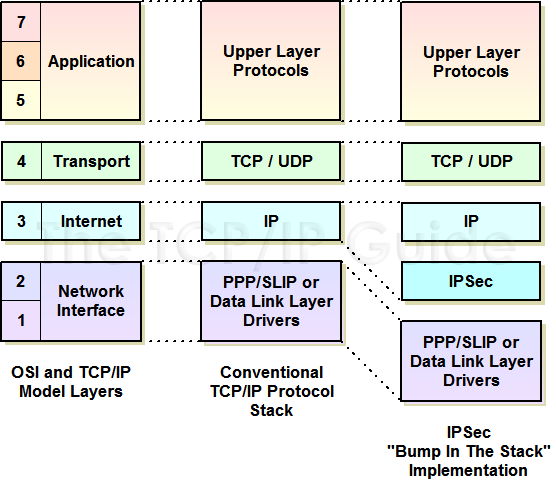Featured
Table of Contents
- – What Is Ipsec? - Blog - Privadovpn
- – Difference Between Ipsec And Ssl
- – Difference Between Ipsec And Ssl
- – Guide To Ipsec Vpns - Nist Technical Series P...
- – 7 Common Vpn Protocols Explained And Compared
- – Unifi Gateway - Site-to-site Ipsec Vpn
- – 1. Define Ipsec? 2. What Ipsec Used For? 3. ...
- – Sd-wan Vs Ipsec Vpn's - What's The Difference?
- – What Are Ipsec Policies?
- – Ssl Vpns Vs. Ipsec Vpns: Vpn Protocol Differ...
What Is Ipsec? - Blog - Privadovpn
IPsec (Internet Protocol Security) is a structure that assists us to safeguard IP traffic on the network layer. IPsec can protect our traffic with the following features:: by encrypting our information, nobody except the sender and receiver will be able to read our information.

By calculating a hash worth, the sender and receiver will be able to check if changes have been made to the packet.: the sender and receiver will validate each other to make sure that we are truly talking with the gadget we intend to.: even if a packet is encrypted and confirmed, an assaulter might try to catch these packages and send them once again.
Difference Between Ipsec And Ssl
As a structure, IPsec uses a variety of procedures to execute the functions I explained above. Here's an overview: Don't worry about all the boxes you see in the image above, we will cover each of those. To provide you an example, for encryption we can choose if we desire to use DES, 3DES or AES.
In this lesson I will start with a summary and then we will take a better take a look at each of the elements. Before we can protect any IP packages, we need 2 IPsec peers that develop the IPsec tunnel. To develop an IPsec tunnel, we use a protocol called.
Difference Between Ipsec And Ssl
In this phase, an session is established. This is likewise called the or tunnel. The collection of parameters that the 2 gadgets will utilize is called a. Here's an example of 2 routers that have actually developed the IKE phase 1 tunnel: The IKE phase 1 tunnel is just utilized for.
Here's an image of our two routers that completed IKE stage 2: Once IKE phase 2 is finished, we have an IKE phase 2 tunnel (or IPsec tunnel) that we can use to safeguard our user information. This user data will be sent out through the IKE stage 2 tunnel: IKE develops the tunnels for us however it doesn't validate or encrypt user data.
Guide To Ipsec Vpns - Nist Technical Series Publications


I will discuss these two modes in detail later on in this lesson. The entire process of IPsec consists of 5 actions:: something has to trigger the creation of our tunnels. For example when you configure IPsec on a router, you utilize an access-list to inform the router what information to safeguard.
Everything I explain listed below uses to IKEv1. The main purpose of IKE stage 1 is to establish a safe and secure tunnel that we can use for IKE stage 2. We can break down stage 1 in three basic actions: The peer that has traffic that should be protected will initiate the IKE stage 1 settlement.
7 Common Vpn Protocols Explained And Compared
: each peer needs to show who he is. Two typically used choices are a pre-shared secret or digital certificates.: the DH group determines the strength of the key that is used in the crucial exchange procedure. The higher group numbers are more protected however take longer to compute.
The last action is that the 2 peers will confirm each other utilizing the authentication approach that they agreed upon on in the settlement. When the authentication succeeds, we have finished IKE phase 1. The end outcome is a IKE stage 1 tunnel (aka ISAKMP tunnel) which is bidirectional.
Unifi Gateway - Site-to-site Ipsec Vpn
This is a proposition for the security association. Above you can see that the initiator uses IP address 192. 168.12. 1 and is sending out a proposition to responder (peer we wish to link to) 192. 168.12. 2. IKE uses for this. In the output above you can see an initiator, this is a special worth that recognizes this security association.
The domain of analysis is IPsec and this is the very first proposition. In the you can find the attributes that we desire to utilize for this security association.
1. Define Ipsec? 2. What Ipsec Used For? 3. What Are The ...
Given that our peers settle on the security association to utilize, the initiator will start the Diffie Hellman essential exchange. In the output above you can see the payload for the key exchange and the nonce. The responder will also send his/her Diffie Hellman nonces to the initiator, our two peers can now determine the Diffie Hellman shared key.
These two are utilized for recognition and authentication of each peer. IKEv1 primary mode has actually now completed and we can continue with IKE stage 2.
Sd-wan Vs Ipsec Vpn's - What's The Difference?
You can see the transform payload with the security association qualities, DH nonces and the identification (in clear text) in this single message. The responder now has everything in needs to generate the DH shared crucial and sends out some nonces to the initiator so that it can also calculate the DH shared secret.
Both peers have everything they require, the last message from the initiator is a hash that is utilized for authentication. Our IKE stage 1 tunnel is now up and running and we are prepared to continue with IKE stage 2. The IKE phase 2 tunnel (IPsec tunnel) will be really used to safeguard user data.
What Are Ipsec Policies?
It secures the IP package by determining a hash worth over practically all fields in the IP header. The fields it excludes are the ones that can be altered in transit (TTL and header checksum). Let's start with transportation mode Transport mode is simple, it simply adds an AH header after the IP header.
With tunnel mode we add a brand-new IP header on top of the initial IP package. This could be useful when you are utilizing private IP addresses and you need to tunnel your traffic over the Web.
Ssl Vpns Vs. Ipsec Vpns: Vpn Protocol Differences ...
Our transportation layer (TCP for instance) and payload will be secured. It also provides authentication however unlike AH, it's not for the entire IP package. Here's what it appears like in wireshark: Above you can see the original IP packet which we are utilizing ESP. The IP header is in cleartext but everything else is encrypted.
The original IP header is now likewise encrypted. Here's what it appears like in wireshark: The output of the capture is above is similar to what you have seen in transport mode. The only difference is that this is a brand-new IP header, you don't get to see the original IP header.
Table of Contents
- – What Is Ipsec? - Blog - Privadovpn
- – Difference Between Ipsec And Ssl
- – Difference Between Ipsec And Ssl
- – Guide To Ipsec Vpns - Nist Technical Series P...
- – 7 Common Vpn Protocols Explained And Compared
- – Unifi Gateway - Site-to-site Ipsec Vpn
- – 1. Define Ipsec? 2. What Ipsec Used For? 3. ...
- – Sd-wan Vs Ipsec Vpn's - What's The Difference?
- – What Are Ipsec Policies?
- – Ssl Vpns Vs. Ipsec Vpns: Vpn Protocol Differ...
Latest Posts
Best Free Vpn For Business In 2023
Why You Need A Vpn, And How To Choose The Right One
15 Leading Vpn Software For Startups For 2023
More
Latest Posts
Best Free Vpn For Business In 2023
Why You Need A Vpn, And How To Choose The Right One
15 Leading Vpn Software For Startups For 2023